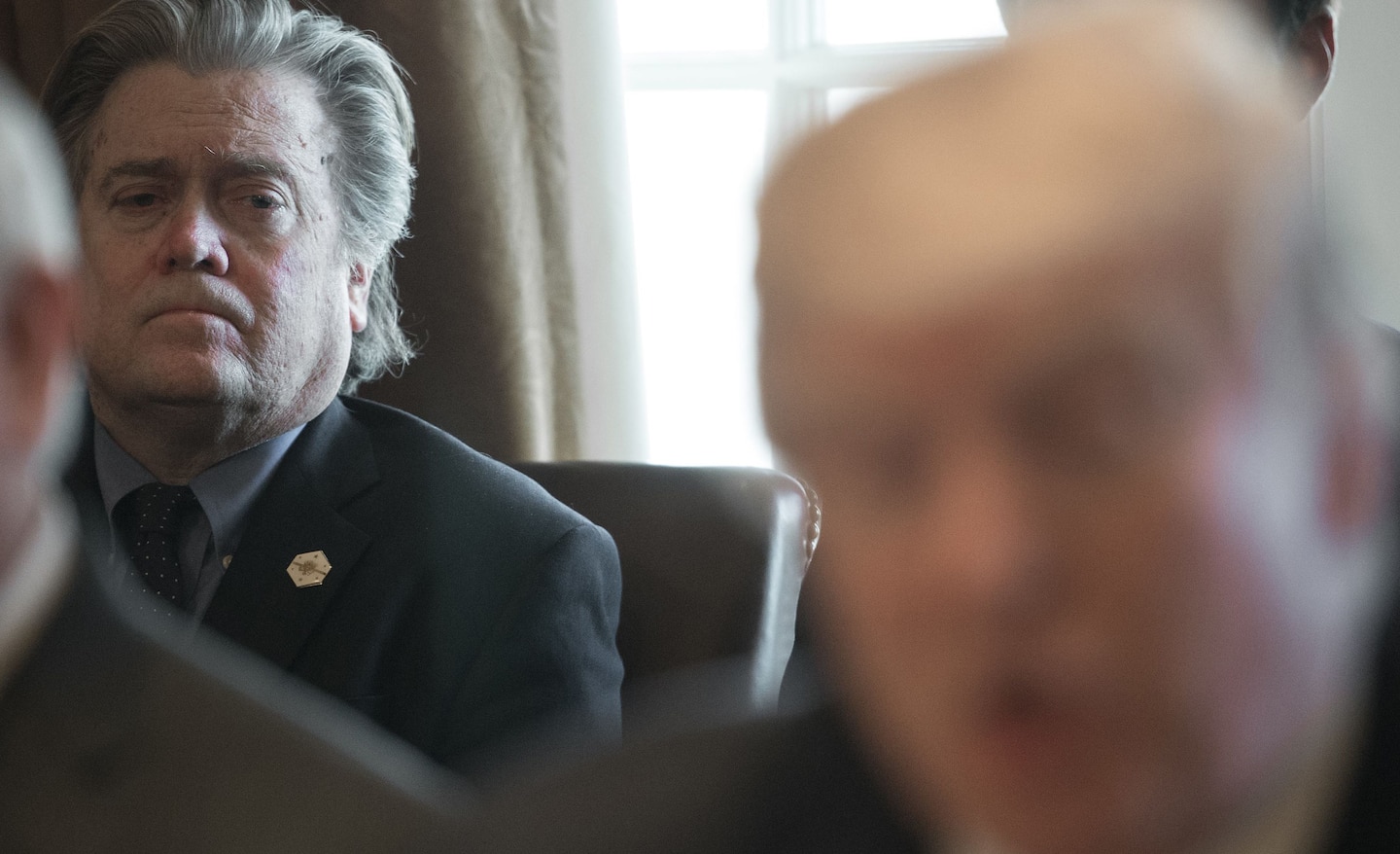Who could have predicted the Capitol riot? Plenty of people — including Trump allies.

Indeed, it was more or less predicted by both Trump allies and critics.
The day before the attack, former top Trump adviser Stephen K. Bannon said on his podcast, “All hell is going to break loose tomorrow. Just understand this: All hell is going to break loose tomorrow. It’s going to be moving. It’s going to be quick.”
He added: “So many people said, ‘Man, if I was in revolution, I would be in Washington.’ Well, this is your time in history.”
And: “It’s all converging, and now we’re on the point of attack tomorrow. … And all I can say is: Strap in. You have made this happen, and tomorrow it’s game day.”
Bannon’s comments may not have explicitly referenced actual violence — political rhetoric tends to be littered with war metaphors, after all — but he was clearly predicting something more substantial than your standard peaceful protest. Bannon, who was indicted last year, was pardoned by Trump before he left office. He was also banned by Twitter for talking about putting “heads on pikes” a couple of months earlier.
Bannon’s Jan. 5 comments also echoed Trump’s mid-December tweet promoting the rally, which he promised “will be wild.”
Other prominent supporters also cast the date in revolutionary terms on the eve of the storming, including freshman Rep. Lauren Boebert (R-Colo.), who said at 8:30 that morning, “Today is 1776” — referring to the Revolutionary War. Other members of Congress invoked similar metaphors.
Pro-Trump online forums featured myriad predictions of calls for violence, including users repeatedly responding to a thread by saying, “storm the Capitol.” One popular comment read, “I’m thinking it will be literal war on that day. … Where we’ll storm offices and physically remove and even kill all the D.C. traitors and reclaim the country.” The comments were highlighted by the Daily Beast even before the Capitol attack.
“On January 6, armed Trumpist militias will be rallying in DC, at Trump’s orders,” Kovler said on Dec. 21. “It’s highly likely that they’ll try to storm the Capitol after it certifies Joe Biden’s win. I don’t think this has sunk in yet.”
He added: “To be clear here, I don’t think the 3%ers, Proud Boys, Oathkeepers or boogaloo types are going to seize the Capitol. But some of them are going try. And people will die.”
In October, former Trump administration counterterrorism official Elizabeth Neumann made a similar, if less specific, prediction about Trump claiming a stolen election leading to violence.
New York Times columnist Kara Swisher also envisioned such a scenario as far back as 2019, saying she often asked people what could be done “if Mr. Trump loses the 2020 election and tweets inaccurately the next day that there had been widespread fraud and, moreover, that people should rise up in armed insurrection to keep him in office.”
Georgia elections official Gabriel Sterling, a Republican, made a direct plea to Trump after he and others who certified Joe Biden’s presidential win in their state were threatened.
“Stop inspiring people to commit potential acts of violence,” Sterling said on Dec. 1. “Someone’s going to get hurt. Someone’s going to get shot. Someone’s going to get killed.”
But the predictions weren’t limited to present-day Trump critics. Even some allies predicted something remarkably similar to what we saw today — albeit a long time ago, when they were trying to defeat him in the 2016 campaign.
Nikki Haley, who later became Trump’s U.N. ambassador and who suggested this week that it’s time to “move on” from the Capitol attack, predicted in 2016 that Trump’s rhetoric could lead to the kind of violence we saw in the church massacre in her home state of South Carolina.
And in perhaps the eeriest comments, fellow 2016 Trump challenger Rick Perry — who would later become Trump’s energy secretary — in 2015 actually likened Trump’s rhetoric to what led to a previous attack on the nation’s capital, by members of the Know Nothing Party. Like today’s misguided election conspiracists, they, too, subscribed to an extreme belief: The pope was planning to take over the United States. So, in 1854, they forcibly overtook a guard and destroyed marble slabs that were to be used in the construction of the Washington Monument.
“These people built nothing, created nothing. They existed to cast blame and tear down certain institutions, to give outlet to anger,” Perry said. “Donald Trump is the modern-day incarnation of the Know Nothing movement.”
Today, that utterly remarkable parallel to the current moment isn’t something Republicans like Perry or Haley have much interest in looking into. Again, whether Trump technically incited the attempted insurrection is a valid question; the legal bar for incitement is high. But given the concerns expressed about just such a situation occurring, it would seem to be something worth discussing.
Perhaps they think Trump was simply too cavalier with his rhetoric but didn’t technically incite. Perhaps they think that their warnings about his rhetoric potentially leading to violence don’t actually apply here and that this was merely a bunch of extremists hearing what they wanted to hear from the president.
But given the predictability of this event — and the actual predictions of it — why not have a real debate about all that? Even setting aside direct incitement, there’s a real question about what Trump could have done to stop the fervor and even bloodlust. Some Republicans such as House Minority Leader Kevin McCarthy (R-Calif.) and Sen. Tom Cotton (R-Ark.) even blamed Trump for not doing more sooner to take down the temperature — although that milder form of censure has faded rather quickly.
It’s a thorny issue for a GOP that is wary of alienating Trump’s supporters, to be sure, but their own past comments and the sometimes prescient warnings of plenty of others seem to make it worthy of an accounting.






